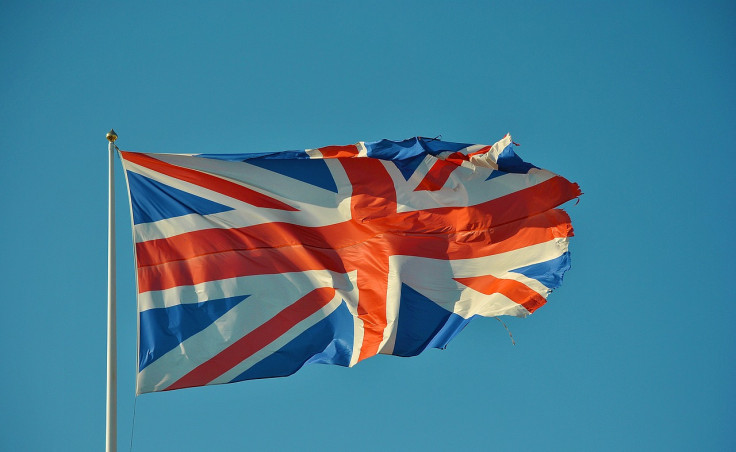Starmer's Labour Government Faces New Opportunity To Recalibrate UK Policy On Libya
With a change in government, the UK now has an opportunity to revise its stance on Libya

The recent political developments in Libya present a critical opportunity for the newly elected Labour government under Prime Minister Keir Starmer to redefine the UK's approach to the North African nation. As 75 members of Libya's High Council of State announce their support for restoring the country's historic constitutional monarchy-led parliamentary democracy, the UK is uniquely positioned to reconsider its engagement in Libya.
In this country, British intervention has historically produced mixed results. On August 5, 2024, a group of 75 members of Libya's High Council of State, representing the country's western, eastern, and southern regions, sent a letter, published only a few days ago, to UN Secretary-General António Guterres endorsing a return to Libya's 1951 constitution and the restoration of the constitutional monarchy under His Royal Highness Prince Mohammed al-Rida al-Senussi. The Crown Prince, a significant figure in this potential shift in Libya's political landscape, currently resides in London, adding a uniquely British dimension to the situation.
A New Opportunity For British Foreign Policy
With a change in government, the UK now has an opportunity to revise its stance on Libya. British policy has faced criticism and accusations of inconsistency in this area since the fall of Muammar Gaddafi in 2011. Under Keir Starmer's leadership, the Labour government could chart a new course, moving away from the perceived policy missteps of the past and towards a constructive engagement that aligns with the UK's long-term strategic interests and democratic values.
In the wake of the Arab Spring, the UK played a leading role in NATO's military intervention in Libya in 2011, which resulted in the overthrow of Gaddafi but left the country in a state of political fragmentation and civil war. The lack of a coherent post-conflict strategy has often been cited as a failure of British foreign policy, with critics arguing that the UK's approach to Libya was marred by short-term thinking and a lack of commitment to rebuilding efforts.
Since 2011, successive Conservative governments have been scrutinised over their handling of Libya, with criticisms ranging from inadequate support for peacebuilding to insufficient diplomatic engagement. The UK's role in Libya has frequently been viewed as reactive rather than proactive, characterised by a lack of consistent policy direction and limited influence over subsequent developments in the country.
Starmer's Chance to Change Course
Prime Minister Keir Starmer has signalled a desire to reset British foreign policy, emphasising human rights, international cooperation, and a more balanced approach to international relations. Libya presents a real opportunity for its government to make good on these promises by supporting a Libyan-led process that could stabilise the country and advance democratic governance.
The Labour government could seize this moment to actively support the proposed return to constitutional monarchy, which the High Council of State members believe offers a unifying framework for the country. A fresh approach could involve:
- Increased diplomatic engagement with Libyan stakeholders.
- Support for dialogue initiatives.
- A renewed focus on fostering a democratic transition.
With Prince Mohammed al-Rida al-Senussi, who leads a restored monarchy and resides in London, the UK is well-positioned to facilitate new discussions and contribute to shaping Libya's future.
The High Council of State's recent move aims to overcome Libya's ongoing political deadlock and institutional fragmentation. The 1951 constitution, which the council members describe as "the only unifying matter that all the conflicting factions in Libya will agree upon," could provide a basis for national reconciliation that the UK could support.
Past Failures And A Path Forward
Britain's involvement in Libya during the 2011 intervention was intended to prevent humanitarian disasters and support democratic aspirations. However, the subsequent lack of a coherent follow-up strategy allowed Libya to descend into chaos. Critics have long argued that the UK's focus was too narrowly confined to military objectives, without adequate post-conflict reconstruction or stabilisation planning. The vacuum left after Gaddafi's fall contributed to the proliferation of armed groups, civil conflict, and a political stalemate that has persisted for over a decade.
Keir Starmer's government now has a chance to acknowledge these past failures and set a new direction. A recalibrated approach could emphasise sustained diplomatic efforts, development assistance, and support for governance and rule-of-law initiatives, in line with the Labour government's stated priorities of upholding international law and promoting democracy.
A Critical Moment For UK-Libya Relations
As Libya reaches a potential turning point, the UK must decide whether to re-engage with renewed purpose or continue with the sporadic, reactive stance that has characterised its involvement over the past decade. The High Council of State's call for a constitutional monarchy, led by Prince Mohammed Senussi, opens a diplomatic window for the UK to play a more constructive role.
As noted, Prince Mohammed's residence in London places the UK in a unique position to influence the next phase of Libya's political journey. By offering diplomatic support, facilitating dialogue, and engaging constructively with all parties, the UK could help shape a more stable and democratic future for Libya.
© Copyright IBTimes 2025. All rights reserved.




















